In this edition of Sliced, the 3D Printing Industry news digest, we cover the latest business developments and partnerships in the 3D printing sector.
Today’s edition includes a plethora of new 3D printing partnerships and business updates, materials launches, updated 3D printing certifications and guidelines, and a first look at ICON’s new 3D printed houses.
Read on for the most recent updates from Matsuura Machinery, ASTM International, 3DZ France, 3D Metalforge, Velo3D, Fiberthree, PostProcess Technologies, and more.
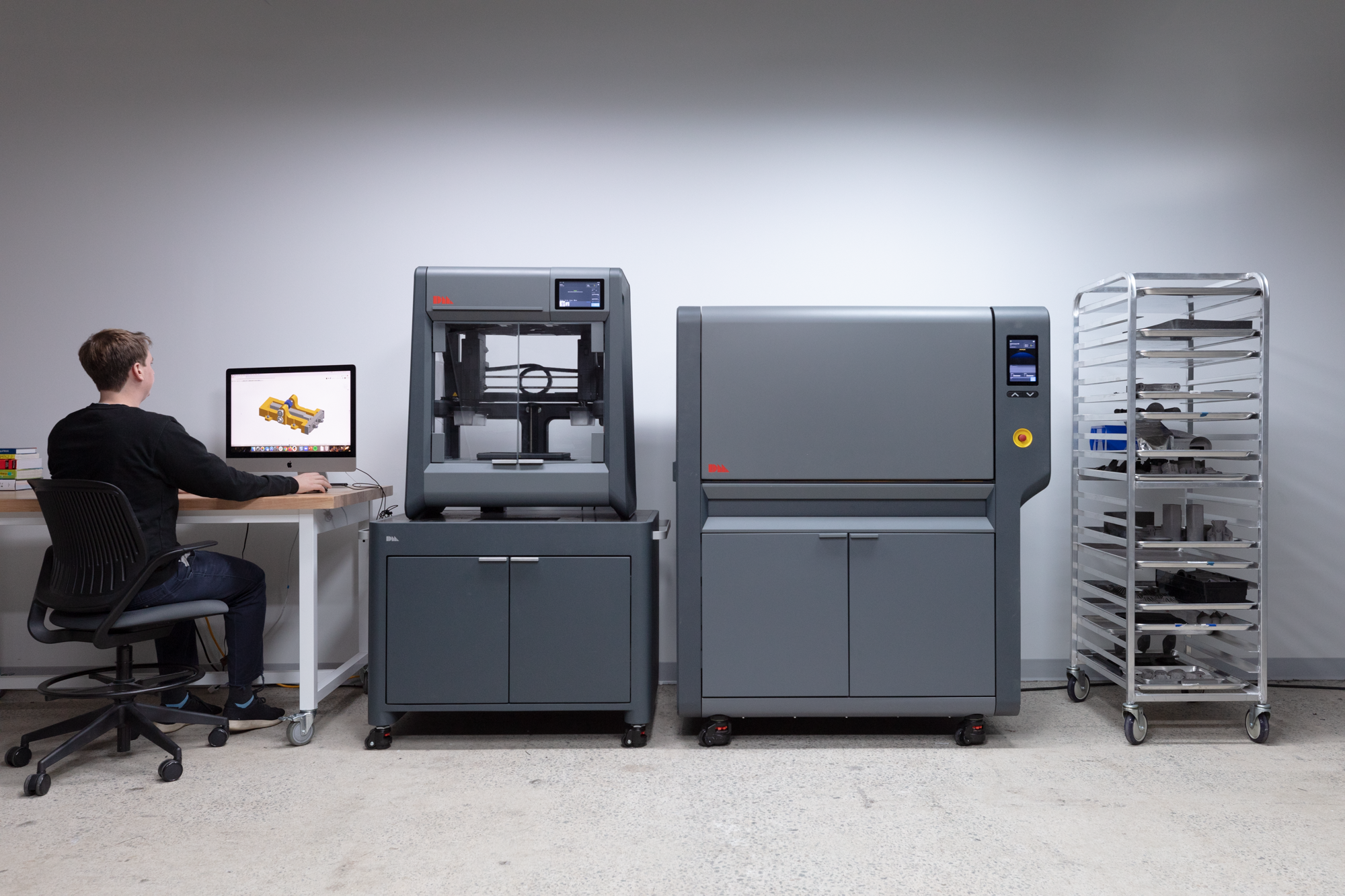
New 3D printing partnerships from Desktop Metal, PostProcess Technologies, 3D Metalforge, Velo3D, and ExOne
Getting this week’s partnership round-up underway is a new reseller agreement between 3D printing and machine tool manufacturing firm Matsuura Machinery and binder jet 3D printer manufacturer Desktop Metal. Matsuura will exhibit Desktop Metal’s Studio System 2 at the upcoming TCT3Sixty event in Birmingham between 28-30th September.
“We are delighted to enter into this reseller partnership with Matsuura UK,” said Paul Gately, Regional Sales Manager for Desktop Metal. “By combining the power of the Desktop Metal’s portfolio of additive manufacturing solutions, with Matsuura’s expertise in CNC machining, 3D printing and hybrid products such as the LUMEX Series, this partnership affords Desktop Metal superb visibility in the UK and Ireland markets.”
Meanwhile, automated post-processing systems developer PostProcess technologies has welcomed 3DZ France as its newest channel partner. PostProcess will join the likes of 3D Systems, Markforged, Formlabs and others in being represented by 3DZ, with its systems becoming the first automated post-printing technology offered by the reseller.
“Internationally, and across a variety of print technologies, PostProcess’ solutions have proven imperative in scaling throughput for production volume 3D printing,” said Alain Marion, Head of Regional Sales for Southern Europe at PostProcess Technologies. “As the additive realm shifts towards higher volumes, we look forward to bringing tailored end-to-end digital connectivity to 3DZ’s new and existing clients alike.”
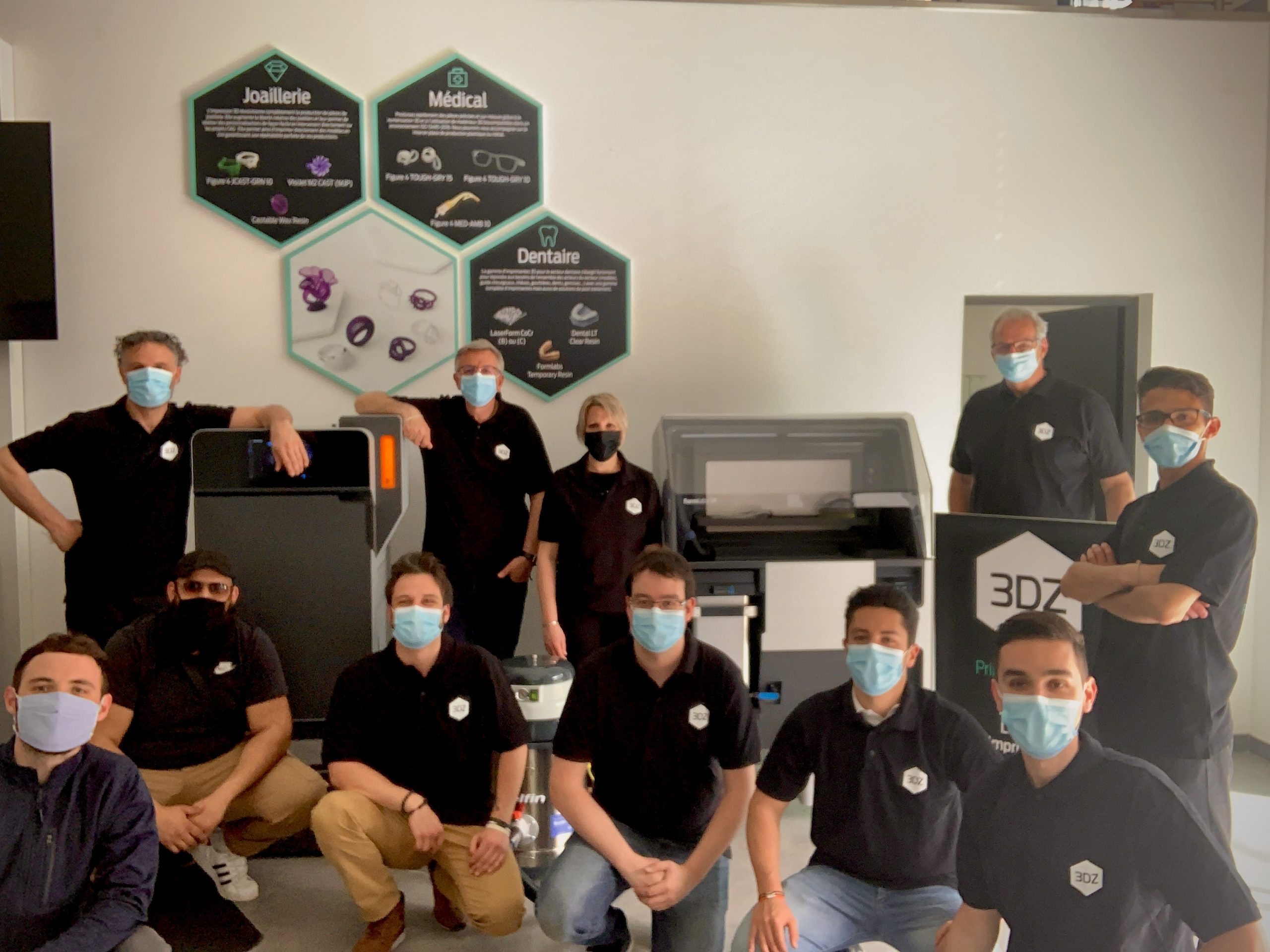
Moving on from distribution agreements, and 3D printing service provider 3D Metalforge has teamed up with oil refinery operator Par Pacific Holdings to identify parts suitable for production via its proprietary 3D printing technology. After successful field testing, the companies plan on introducing the 3D printed parts into Par Pacific’s supply chain, initially starting with the firm’s Hawaii refinery before rolling them out to its other sites.
By leveraging additive manufacturing, the project hopes to reduce both Par Pacific’s delivery time on critical parts and the transportation emissions for strategic parts.
Elsewhere, private US aerospace firm Launcher has been so impressed with the performance of its first Velo3D advanced Sapphire metal 3D printing system that it has purchased a second machine, dedicated to printing titanium. Building on its existing partnership with Velo3D, Launcher will continue to work with the company to 3D print fuel pumps, flight turbines housing parts, and orbiter pressure vessels for its high-performance rockets.
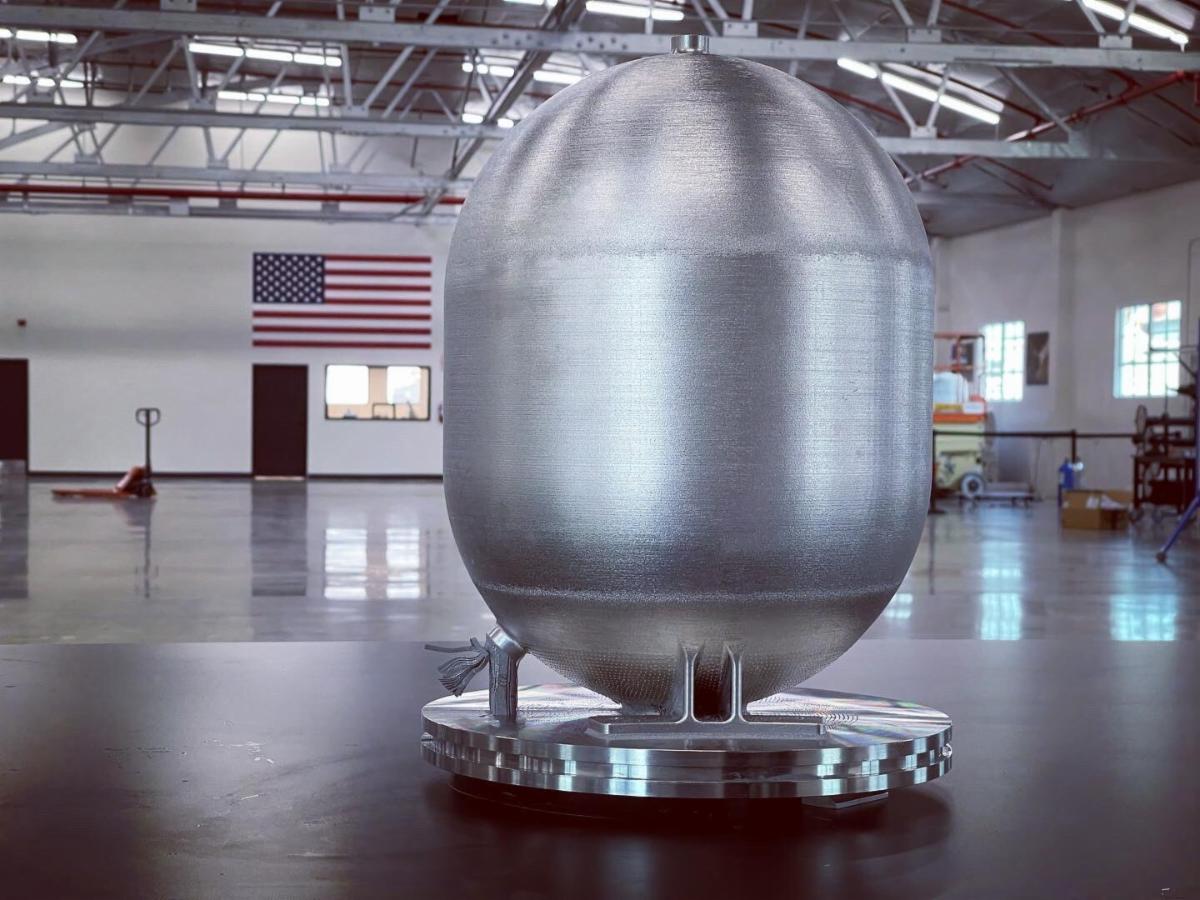
Rounding off this week’s partnerships update, binder jet 3D printer manufacturer ExOne is deepening its partnership with the Fraunhofer Institute for Manufacturing Technology and Advanced Materials (Fraunhofer IFAM) following the successful development of their CleanFuse metal binder. The partners have been working together for more than two decades, and have most recently been jointly developing and optimizing CleanFuse for the optimal 3D printing of stainless steels and premium metals.
“When we started developing the first binder jet version on the Innovent, we soon realized we had a major breakthrough,” said Frank Petzoldt, Deputy Director of Fraunhofer IFAM. “ExOne was immediately very enthusiastic about our development, because of its exceptional green part strength and clean burnout at low curing temperature. Together with ExOne, we refined the binder, which is now CleanFuse.”
Going forward, ExOne and Fraunhofer IFAM will begin work on a version of CleanFuse capable of processing reactive materials such as aluminum and titanium.
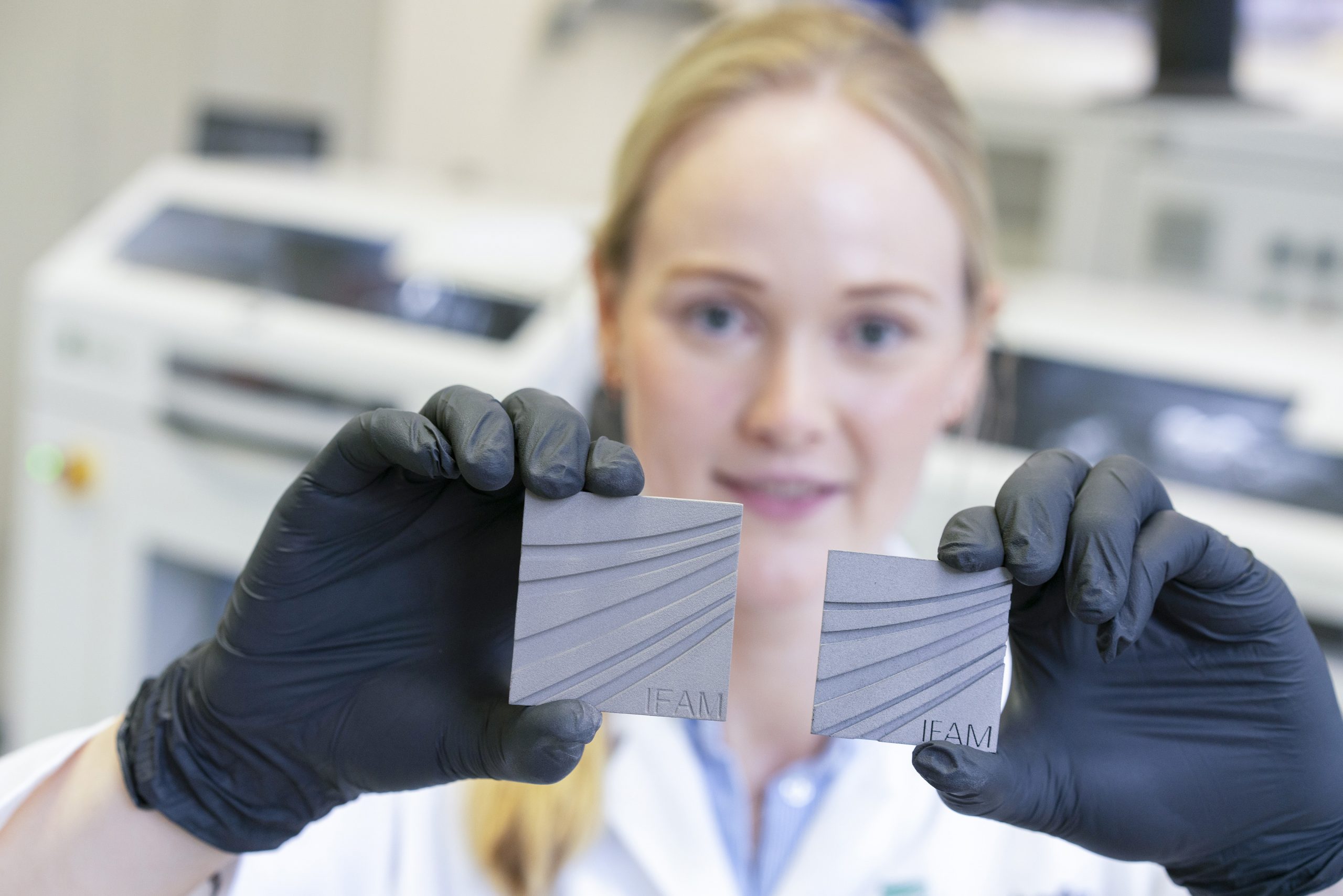
Material updates from Desktop Metal, Fiberthree, Lostboyslab and Carbon
Desktop Metal kicks off this week’s materials launches, having qualified 316L Stainless Steel for use on its Shop System. Users can now leverage the firm’s metal binder jetting system to print end-use parts in 316L stainless steel, a material known for its corrosion resistance, high ductility, and excellent mechanical properties at extreme temperatures.
The company has validated that 316L Stainless Steel parts printed and sintered using its Shop System meet MPIF 35 standards set by the Metal Powder Industries Federation.
“The launch of 316L for the Shop System is a part of an aggressive and extensive materials roadmap to broaden our AM 2.0 portfolio and address a rapidly expanding set of use cases for our print platforms,” said Jonah Myerberg, Co-founder and CTO of Desktop Metal. “We are fully focused on developing opportunities for our customers to produce parts competitively with conventional manufacturing, and we are excited to be able to extend our diner jetting technology to meet this need and address key existing and emerging killer applications for 316L in the market.”
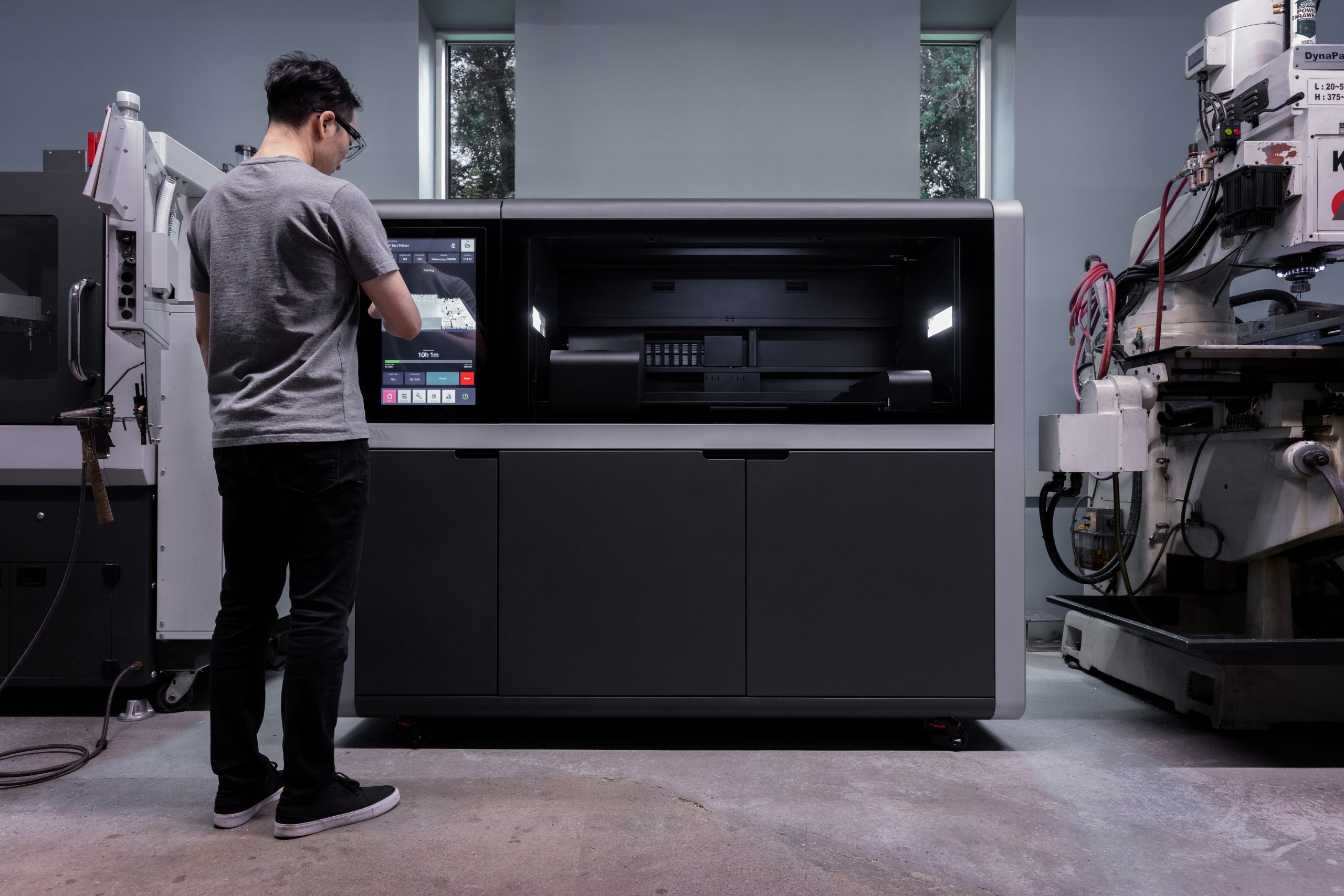
FFF materials producer Fiberthree, meanwhile, has launched a new filament to its portfolio of industrial prototyping and serial production materials. F3 PA-GF30 Pro is designed to eliminate the need for molds for injection molded parts during the early stages of development, subsequently reducing costs and lead times.
Printable down to 0.4mm nozzles, F3 PA-GF30 Pro enables users to print fine details and is engineered to exhibit strength and stiffness that exceeds other available PAGF30s on the market. The material features a high tensile strength and low warping effect and water absorption, while also being chemically resistant to many oils, carburant, and chemicals.
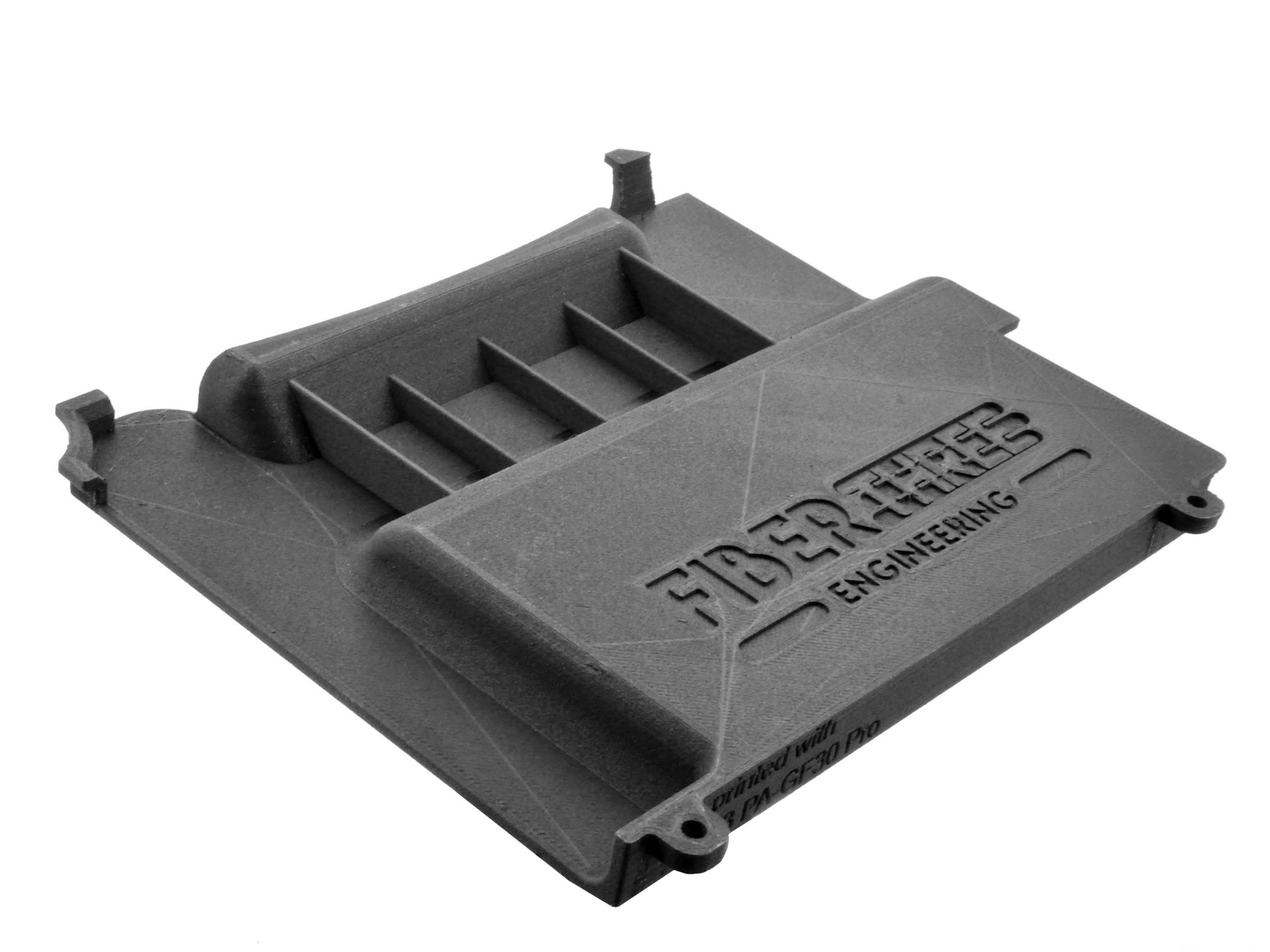
Elsewhere, design studio and 3D print farm lostboyslab has launched two collections of new recycled PLA 3D printing filaments in partnership with 3D printing filament vendor Reflow. Engineered for design professionals that utilize extrusion 3D printing for final production, the filaments are available in a matte finish and are color matched using the Natural Color System (NCS colors) which is widely used in architecture and interior design.
The filaments are designed to give FDM printed home decorations, interior products, architectural models and other products a surface finish similar to that of clay and ceramics, rather than plastic.
In further news from PostProcess technologies, the firm’s automated Resin Removal system is now compatible with 3D printer OEM Carbon’s DPR 10 resin used in the production of 3D printed dental and orthodontic models. Developed specifically for use with Carbon’s Digital Light Synthesis (DLS) printing technology, the DEMI 910 resin removal system was introduced to the market earlier this year, and has now been proven compatible with Carbon’s DPR 10 resin.
“Like all of our automated 3D post-printing solutions, the DEMI 910 was designed to deliver scalability and efficiency for additive manufacturing users,” said Dean VonBank, VP of Strategic Partnerships at PostProcess Technologies. “Expanding our Carbon partnership to include compatibility with DPR 10 means a streamlined and more sustainable process for Carbon customers in the Oral Health and other industries.”
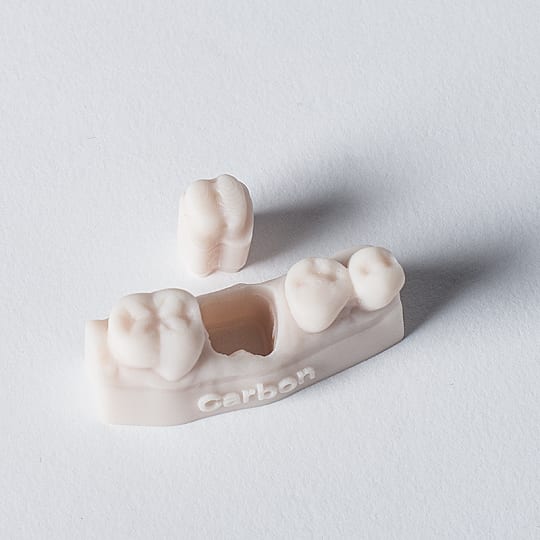
Business updates from BASF Forward AM, Rocket Lab and
Business updates now, and BASF Forward AM, the 3D printing arm of chemical company BASF, has installed a Farsoon HT403P system at its recently opened Additive Manufacturing Technology Center (AMTC) in Shanghai, China.
BASF and Farsoon have been working together on the development of high-temperature materials for laser powder bed fusion (LPBF) 3D printing, and the AMTC will leverage the new system to carry out multiple projects on BASF’s high-performance materials.
In other news, California-based aerospace firm Rocket Lab has completed its merger with blank check company Vector Acquisition Corporation to become publicly listed on the Nasdaq under the tickers “RKLB” and “RKLBW”. The merger and simultaneous PIPE financing has raised $777 million, which Rocket Lab will use to drive both organic and inorganic growth within its space systems business, and advance the development of its upcoming reusable eight-ton payload Neutron rocket.
“Today, we take the next step toward unlocking the full potential of space, paving the way for our larger Neutron launch vehicle which will deploy the constellations of the future, and supporting our potential future expansion into space applications,” said Peter Beck, Rocket Lab Founder and CEO. “I am thrilled to declare space open for business.”
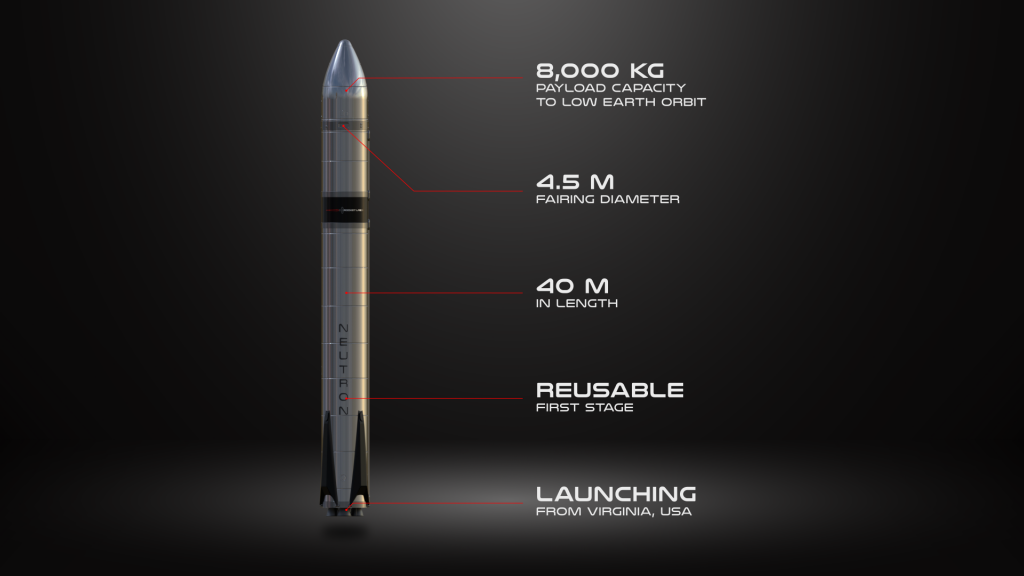
Elsewhere, file security and IP protection provider LEO Lane has announced it is to discontinue its operations and package its assets for sale. While the company did not give a reason for its closure, it said in a statement:
“After more than 7 years of hard work, exhilaration, challenges, twists and turns, we took the sad decision to discontinue the operations of LEO Lane and package its assets for sale. I’d like to take this opportunity to thank all the amazing people that were part of this roller coaster labor of love. With the Jewish new year upon us it is an opportunity to look forward to new things and wish you a sweet, healthy, happy, and successful new year!”
Certification news from Fathom, ClassNK, and ASTM International
After announcing plans to go public via a merger with Special Purpose Acquisition Company (SPAC) Altimar Acquisition Corp. II (ATMR), on-demand manufacturing service provider Fathom Digital Manufacturing has announced a whole host of new certifications across the aviation, space, defense, and medical industries.
Fathom’s manufacturing network now includes the following certifications: AS9100:2016 (Aviation, Space and Defense), NIST 800-171 (Defense), ITAR (Defense), ISO 13485:2016 (Medical), ISO 9001:2015 Design Certified, and ISO 9001:2015.
In the maritime sector, classification society ClassNK has released its “Guidelines for Additive Manufacturing” that summarize the approval requirements for metal marine equipment manufacturing via 3D printing. The guidelines have been drawn up to ensure the safe and proper use of additive manufacturing in the maritime industry, and specify the approval requirements for the feedstock used in metal marine equipment, the manufacturing process, and the testing and inspection of 3D printed products.
The guidelines, which can be downloaded in full here, also refer to the characteristics and management method of metallic powder used in 3D printing.
Focusing on aviation and aerospace, now, and global standards developer ASTM International has signed a Memorandum of Understanding (MoU) with the European Organization for Civil Aviation Equipment (EUROCAE) to foster information exchange and cooperation in the aviation and aerospace sectors.
The agreement will seek to reduce duplications while promoting harmonization, interoperability, and compatibility of technical offerings within the global aviation industry. The organizations will work together to develop standards for emerging technologies and trends within aerospace, and 3D printing is likely to be included within this remit.
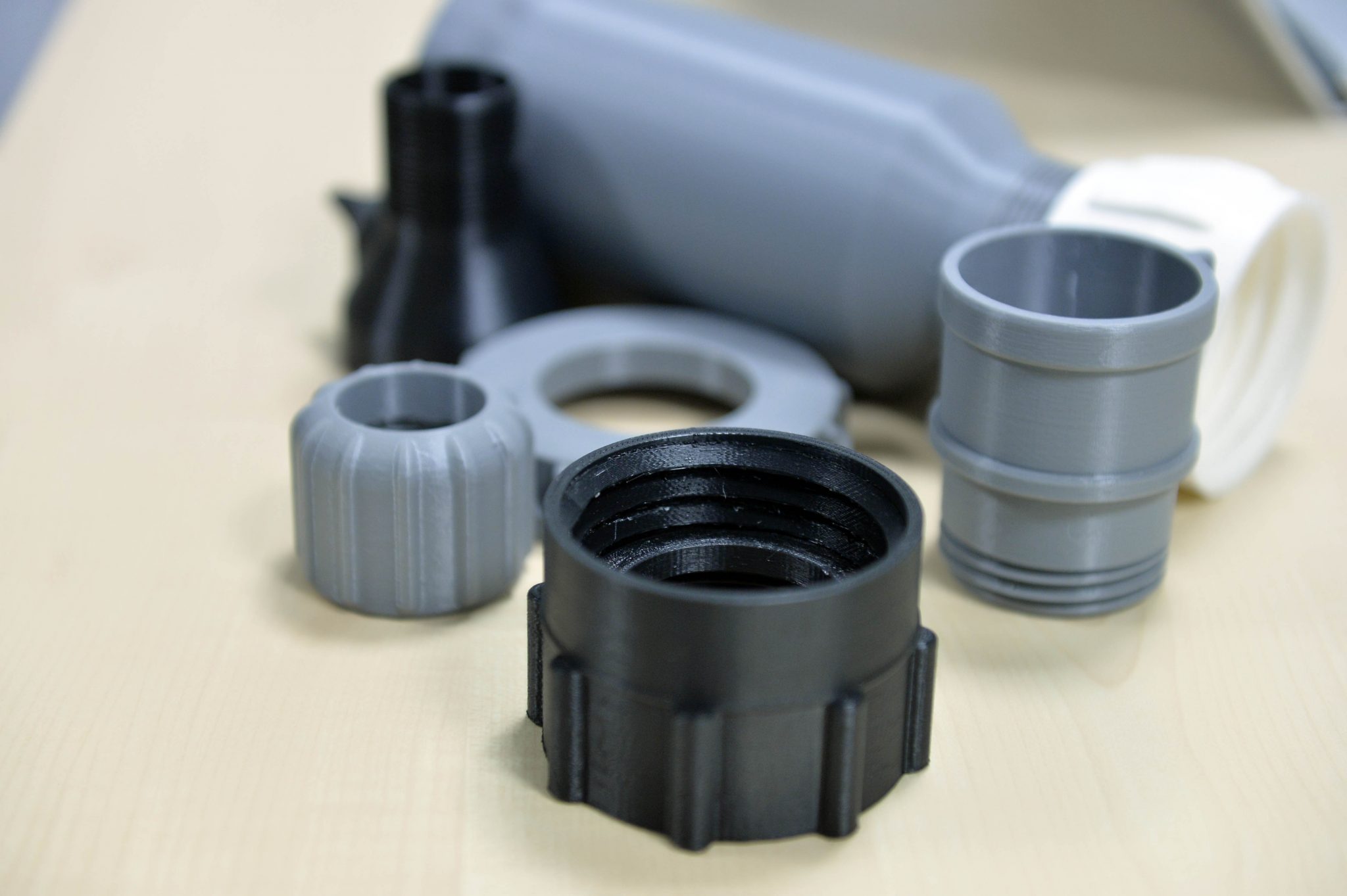
3D scanning aids non-destructive Formula 1 testing
Industrial CT software provider Volume Graphics has helped ensure 3D printed parts destined for the racetrack are fit for purpose at the Alpine F1 Team’s non-destructive test (NDT) laboratory. The company’s CT scanning software was able to inspect, analyze and validate 3D-printed pitot tube and composite brake pedal in just 20 minutes, and was able to identify 3D printing defects from raw material to the post-processed end product.
ICON’s 3D printed homes hit the market
Texas 3D printing firm ICON has delivered the US’ first series of 3D printed homes to the housing market, two of which have already sold. Developed in partnership with Kansas City developer 3Strands, the energy-efficient homes were 3D printed using ICON’s Vulcan construction system and advanced 3D printing material and are reportedly designed to be more resilient than conventionally-built homes.
Engineered to better withstand fire, flood, wind, and other natural disasters, the 3D printed homes form a first-of-its-kind multi-home housing development.
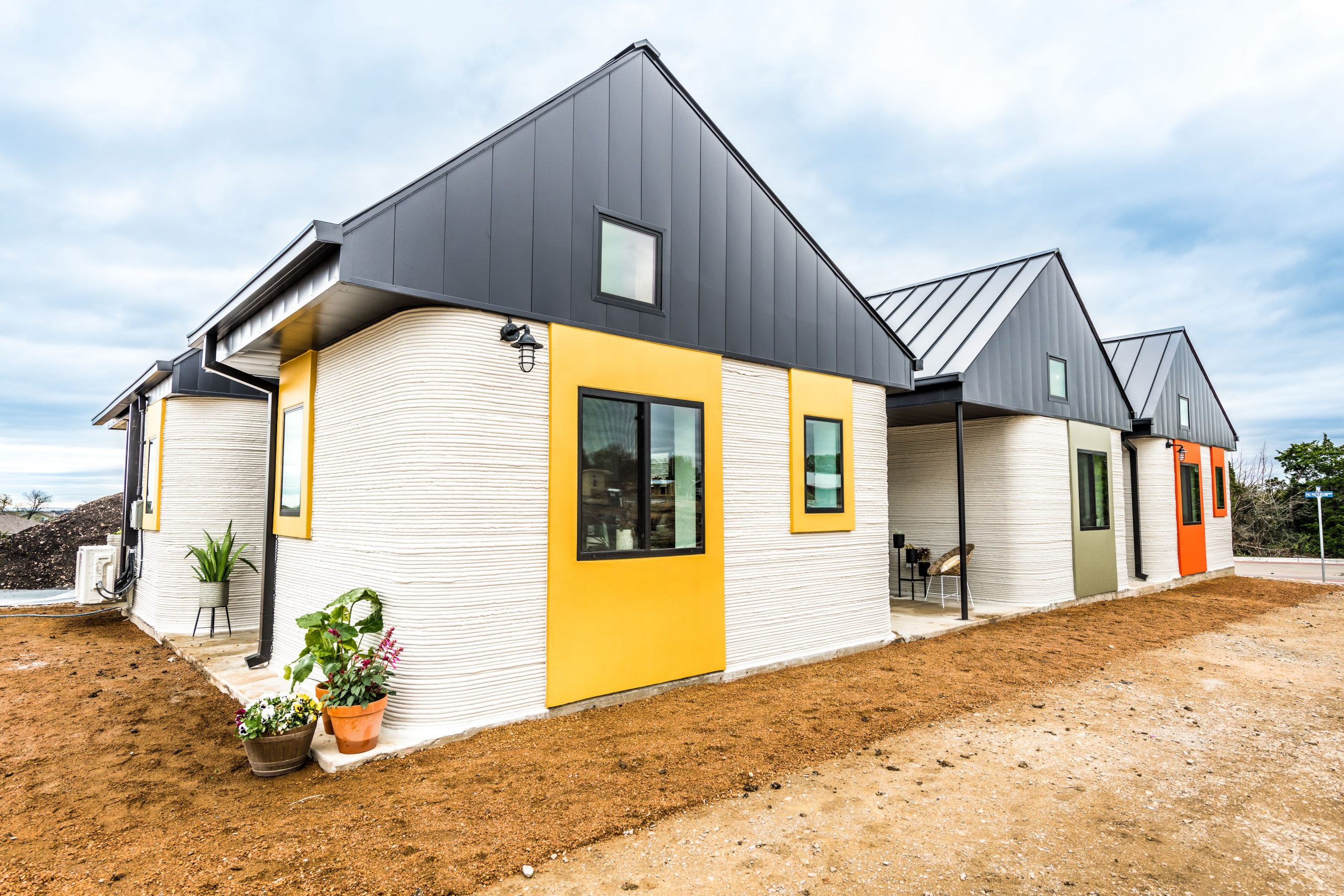
And finally, one for The Simpsons fans…
Rounding off this week’s 3D printing news is one that will interest fans of the popular animated TV series, The Simpsons. Reddit user buba447 has used 3D printing to create a classic Simpsons viewing experience in the form of a miniature replica of the cartoon family’s TV.
What’s more, housed inside the 3D printed casing is a Raspberry Pi Zero and a 32GB SD card containing 11 seasons of the show to watch. To provide a classic ‘always on’ TV experience, the episodes play continuously and are shown at random, so if you have a particular scene you wish to fast forward to, you’re out of luck. D’oh!
Subscribe to the 3D Printing Industry newsletter for the latest news in additive manufacturing. You can also stay connected by following us on Twitter and liking us on Facebook.
Looking for a career in additive manufacturing? Visit 3D Printing Jobs for a selection of roles in the industry.
Subscribe to our YouTube channel for the latest 3D printing video shorts, reviews, and webinar replays.
Featured image shows Buba447’s 3D printed Simpsons TV with the sliced logo.


